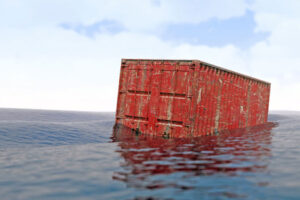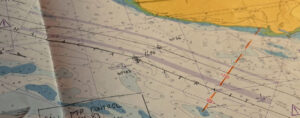We often witness the all-too-familiar sequence of post-crisis events; the smoke clears, the dust settles, losses are tallied, and the finger-pointing begins.
Finger-pointing or the blame game has taken on a different complexion with the rise of digital media platforms and citizen journalism. Organisations find themselves increasingly facing trial by media when they are involved in major crisis events that impact public safety.
The court of public opinion typically portrays the crisis-stricken organisation as a dysfunctional entity plagued with systemic problems. The verdict? The crisis, as a product of systemic failure, could have been avoided if the organisation had identified and addressed those underlying problems.
Tenuous parallels
Following a crisis, some critics may view the event as a microcosm of a much wider ongoing crisis. In doing so, they may draw tenuous parallels and make bold assumptions.
Take for instance the 2018 food contamination crisis in Australia which involved needles found in Australian strawberries. Shortly after the contamination in Queensland and Western Australia was announced, the food scare spread to all six of the country’s states. Supermarket chains in Australia as well as major food retailers in New Zealand and other countries began frantically pulling Australian strawberries off their shelves.
During this period, there was a spike (no pun intended) in the number of reported food contamination incidents. Needles and sharp metal objects were allegedly found in other fruits such as apples, bananas, mangoes and oranges. It was convenient for the media to link these incidents – possibly unsubstantiated claims or the work of copycats – to the strawberry contamination crisis. The tabloids did so to support sensational narratives and conspiracy theories such as commercial sabotage, foreign terrorism and even false flag operations.
Taking a wider perspective
In identifying the root causes of a crisis, it is important to analyse not just the organisation in question but also the macro environmental forces at play. From this perspective, crisis events are the product of a series of interactions between an organisation and the macro environmental forces. Conducting a PEST analysis (political-legal, economic, sociocultural and technological factors) provides context for the crisis.
Political-legal factors
Political-legal factors would include political turmoil, regime change and new legislation by local jurisdictions or supranational organisations.
Organisations operating in countries experiencing political upheaval may face unconventional threats in their business operations. For example, some maritime organisations have come under threats of extrajudicial actions and politically-motivated investigations when operating in certain parts of Latin America and Africa.
Another example is legislation such as the Oil Pollution Act of 1990, a statute which radically altered the liability of parties responsible for oil spills and had a big impact on the oil and gas industry and their insurance providers.
More recent environmental examples include significant IMO conventions that could potentially lead to operational crises, including: the Ballast Water Management Convention and the marine pollution (MARPOL) directives concerning waste emissions from ships (read: 2020 IMO fuel sulphur regulation).

Economic factors
With the world economy more globalised than ever, changes in economic factors such as commodity prices, foreign exchange and interest rates are felt swiftly across global markets. When economic factors move in predictable fashion, the markets usually “price in” the expected change, and organisations can respond accordingly.
However, when price changes are abrupt and significant, it can lead to crisis. Such as in the 1973 oil crisis, when an OPEC-led oil embargo quadrupled oil prices within months with global dramatic effect. It led to the 1973-1975 recession in many countries, ignited the search for alternative energy and changed the way energy-reliant industries operated. The gas-guzzling American muscle car started making way for more-efficient Japanese and German cars.
The oil crises of 1973 and 1979 seared into the consciousness of global businesses that conventional energy and its low prices could no longer be taken for granted. It also catalysed investments in alternative energy such as shale oil and renewable energy sources such as solar power, biofuels and tidal power.
Technological factors
We live in a technology-driven era, inundated with buzzwords: Artificial Intelligence, Industry 4.0, Blockchain, Internet of Things and Augmented Reality – buzzwords that remind us of the new world order.
Society tends to embrace new technology for the comfort and convenience it brings. The same cannot be said for certain businesses when threatened or even displaced by disruptive innovation. As the millennium turned, we saw many businesses and products falling victim to technical obsolescence. Blockbuster gave way to cable TV, but not before posting a loss of US$268 million in 2010 and filing for bankruptcy protection in the same year. With the rising popularity of on-demand streamed content from companies such as Netflix, traditional cable TV operators may soon share the same fate as video stores. Similarly, Polaroid Corporation and Kodak were unable to keep pace with technological advancements and reinvent themselves.
New threats and challenges
Technological advancements have brought about new threats and challenges. Our reliance on the internet, smartphones and wearable technology, has exposed organisations and individuals to new and evolving cybersecurity threats. Maritime is no exception as it continues with its digital transformation. Shipping companies must be vigilant against new threats that could emerge from greater connectivity.
Operating in a globalised economy requires us to understand the macro environmental factors at play; how they bring about opportunities as well as challenges. At Navigate Response, we work closely with our clients to scale their crisis preparedness in tandem with their global operations.








